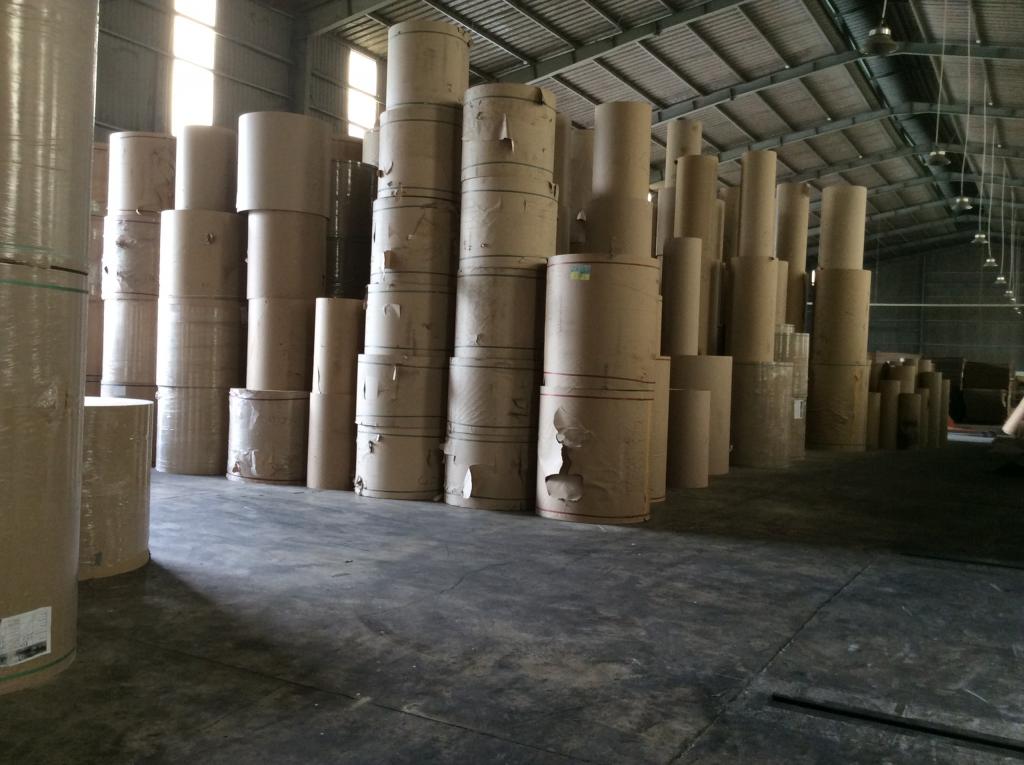http://www.highmpavalve.com/gate-valve/
Cast Steel Gate Valves are characterized by a traveling wedge, which is moved with the operation of the stem nut. The wedge travels perpendicular to the direction of the flow.
Gate valves are double sealing design, it usually have a minimum pressure drop when fully open, provide tight shut-off when fully closed.
Design features:
鈼?Flexible Wedge for improved seating and ease of operation, especially in high temperature service. Wedges are accurately guided thru the entire stroke.
鈼?Standard trim is API trim 8 for carbon steel valves, API trim 5 for chrome alloy valves, and API trim 10 for CF8M (T316) valves for optimal performance under normal conditions. Other trim materials available on request.
鈼?Seat faces lapped for smooth finish and superior sealing.
鈼?Stems are non-rotating with surface finish to maximize packing seal for low fugitive emissions.
鈼?Bonnet and Yoke arms designed for ease of gear, motor or cylinder actuator adaptation.
鈼?Each valve is shell, seat and backseat pressure tested per industry standard API 598.
鈼?Gland is two piece gland / gland flange design for optimal alignment and uniform packing compressio
鈼?End Flanges have the following raised faces per ASME B16.5: Classes 150-300: 1/16鈥?(2mm). Classes 600-1500: 1/4鈥?(7mm).
鈼?Weld ends are available per ASME B16.25 or per customer鈥檚 specification.
鈼?Each valve has a unique certification number that is traceable to the valve certification sheet which includes MTR data, pressure test report, inspection report and certificate of conformance.
鈼?Other available options as follows: -Alternate valve materials such as chrome and stainless steel alloys
-Alternate trim materials -Bypass, drain and other auxiliary connections
-Gear, motor, and cylinder actuators available
-NACE service -Special cleaning for applications such as oxygen or chlorine
-Other options available as specified
Applicable Specification:
Wall thickness API 600, API 6D standard, pressure - temperature ratings ASME B16.34 General valve design API 600 & B16.34 End to End dimensions ASME B16.10 Flange design ASME B16.5 Butt Weld design ASME B16.25
Technical Data
Design StandardAPI600, API 6D, ASME B16.34, DIN3352, EN10434,
Body MaterialCarbon Steel, Stainless Steel, Alloy Steel, Duplex Steel.etc.
NACE MR-01-75/NACE MR-01-03 Special Requirements
Pressures rangeANSI 150 ~ANSI 2500 ,PN10~PN420
Size rangeDN50(2") ~DN1200 (48")
Face to FaceANSI1B 16.10 ,EN 558,DIN3202
Flanged RF, FF, RTJ EndsASME B16.5 鈮?DN600 (24") ASME B16.47 A 鈮?DN650 (26")
BS 4504,DIN 2543-2545,EN1092
Butt-Weld BW EndsASME B16.25 ,DIN 3239,BS 2080, EN 12627
Temperature range-50掳~ 600掳C
Design Feature
ConstructionPressure seal锛孊olted Bonnet, Welded Bonnet
Wedge Typeflexible wedge, solid wedge, double wedge etc
Stem DesignRising stem,
Seat SealingIntegral body seat ,seat welded and overlaid
Valve OperationGear,pneumatic,Hydraulic,Electric actuators.
By passes,locking devices,extended stem,etc
Fire Safe DesignAPI 607,BS 6755
Inspection and Test
Visual InspectionMSS SP-55
Material InspectionPMI Test----Chemical Analysis
HB Test---Hardness Test
UT---Ultrasonic Test
RT---RadiographicTest
MT---Magnetic Test
NDT Test Non-destructive
Dimention inspcetionAccording to drawings
Valve Inspection and TestAPI 598,DIN 3230,EN 12266,BS 5146
How Does a Gate Valve Work?
Gate valve refers to the valve whose closure (Wedge) moves along the vertical direction of the central line of the passage. The gate valve can only be used for full open and full close blocking in the pipeline, and cannot be used for regulation and throttling. Gate valve is a kind of valve with a wide range of applications. Generally, it is used for blocking devices with a diameter of DN 鈮?50mm. Sometimes, gate valves are also used for blocking devices with a small diameter. Gate valves are used as cut-off media. When they are fully opened, the whole is smooth and longitudinal. At this time, the pressure loss of media operation is the smallest. The gate valve is usually used in the condition that the gate does not need to be opened and closed frequently, and the gate is kept fully open or closed. It is not suitable for regulating or throttling. For high-speed moving media, the ram can cause the vibration of the gate when it is partially opened, and the vibration may damage the sealing surface of the ram and valve seat, and throttling will cause the ram to be eroded by the media. From the structural form, the main difference is the form of sealing elements. According to the form of sealing elements, gate valves are often divided into several different types, such as wedge gate valves, parallel gate valves, parallel double gate valves, wedge double gate valves, etc.
The most common forms are wedge gate valves and parallel gate valves:
1. The ram has two sealing surfaces. The two sealing surfaces of the most commonly used Mode RAM valve form a wedge. The wedge angle varies with the valve parameters, usually 50. When the medium temperature is not high, it is. The gate of wedge gate valve can be made into a whole, which is called rigid gate valve; It can also be made into a ram that can produce slight deformation to improve its process-ability and make up for the deviation of the angle of the sealing surface in the processing process. This kind of ram is called an elastic ram.
2. When the gate valve is closed, the sealing surface can only rely on the medium pressure to seal, that is, rely on the medium pressure to press the sealing surface of the gate towards the valve seat on the other side to ensure the sealing of the sealing surface, which is self sealing. Most gate valves adopt forced sealing, that is, when the valve is closed, it is necessary to rely on external force to force the gate towards the valve seat to ensure the tightness of the sealing surface.
3. The gate of the gate valve moves in a straight line with the valve stem, which is called the lift rod gate valve (also known as the rising stem gate valve). Usually, there are trapezoidal threads on the lifting rod. Through the nut on the valve top and the guide groove on the valve body, the rotary motion is changed into linear motion, that is, the control torque is changed into the control thrust.
4. When the valve is opened, when the lifting height of the ram is 1:1 times the valve diameter, the fluid channel is completely unblocked, but during operation, this position cannot be supervised. In actual use, the vertex of the valve rod is taken as the mark, that is, the position that cannot be opened is taken as its full open position. In order to consider the locking phenomenon caused by temperature change, it is usually opened to the peak position and then turned back 1/2-1 turn as the fully open valve position. Therefore, the full open position of the valve is determined by the position (i.e. stroke) of the ram.ChinaGateValve
website:
http://www.highmpavalve.com/gate-valve/ http://www.highmpavalve.com/gate-valve/
Cast Steel Gate Valves are characterized by a traveling wedge, which is moved with the operation of the stem nut. The wedge travels perpendicular to the direction of the flow.
Gate valves are double sealing design, it usually have a minimum pressure drop when fully open, provide tight shut-off when fully closed.
Design features:
鈼?Flexible Wedge for improved seating and ease of operation, especially in high temperature service. Wedges are accurately guided thru the entire stroke.
鈼?Standard trim is API trim 8 for carbon steel valves, API trim 5 for chrome alloy valves, and API trim 10 for CF8M (T316) valves for optimal performance under normal conditions. Other trim materials available on request.
鈼?Seat faces lapped for smooth finish and superior sealing.
鈼?Stems are non-rotating with surface finish to maximize packing seal for low fugitive emissions.
鈼?Bonnet and Yoke arms designed for ease of gear, motor or cylinder actuator adaptation.
鈼?Each valve is shell, seat and backseat pressure tested per industry standard API 598.
鈼?Gland is two piece gland / gland flange design for optimal alignment and uniform packing compressio
鈼?End Flanges have the following raised faces per ASME B16.5: Classes 150-300: 1/16鈥?(2mm). Classes 600-1500: 1/4鈥?(7mm).
鈼?Weld ends are available per ASME B16.25 or per customer鈥檚 specification.
鈼?Each valve has a unique certification number that is traceable to the valve certification sheet which includes MTR data, pressure test report, inspection report and certificate of conformance.
鈼?Other available options as follows: -Alternate valve materials such as chrome and stainless steel alloys
-Alternate trim materials -Bypass, drain and other auxiliary connections
-Gear, motor, and cylinder actuators available
-NACE service -Special cleaning for applications such as oxygen or chlorine
-Other options available as specified
Applicable Specification:
Wall thickness API 600, API 6D standard, pressure - temperature ratings ASME B16.34 General valve design API 600 & B16.34 End to End dimensions ASME B16.10 Flange design ASME B16.5 Butt Weld design ASME B16.25
Technical Data
Design StandardAPI600, API 6D, ASME B16.34, DIN3352, EN10434,
Body MaterialCarbon Steel, Stainless Steel, Alloy Steel, Duplex Steel.etc.
NACE MR-01-75/NACE MR-01-03 Special Requirements
Pressures rangeANSI 150 ~ANSI 2500 ,PN10~PN420
Size rangeDN50(2") ~DN1200 (48")
Face to FaceANSI1B 16.10 ,EN 558,DIN3202
Flanged RF, FF, RTJ EndsASME B16.5 鈮?DN600 (24") ASME B16.47 A 鈮?DN650 (26")
BS 4504,DIN 2543-2545,EN1092
Butt-Weld BW EndsASME B16.25 ,DIN 3239,BS 2080, EN 12627
Temperature range-50掳~ 600掳C
Design Feature
ConstructionPressure seal锛孊olted Bonnet, Welded Bonnet
Wedge Typeflexible wedge, solid wedge, double wedge etc
Stem DesignRising stem,
Seat SealingIntegral body seat ,seat welded and overlaid
Valve OperationGear,pneumatic,Hydraulic,Electric actuators.
By passes,locking devices,extended stem,etc
Fire Safe DesignAPI 607,BS 6755
Inspection and Test
Visual InspectionMSS SP-55
Material InspectionPMI Test----Chemical Analysis
HB Test---Hardness Test
UT---Ultrasonic Test
RT---RadiographicTest
MT---Magnetic Test
NDT Test Non-destructive
Dimention inspcetionAccording to drawings
Valve Inspection and TestAPI 598,DIN 3230,EN 12266,BS 5146
How Does a Gate Valve Work?
Gate valve refers to the valve whose closure (Wedge) moves along the vertical direction of the central line of the passage. The gate valve can only be used for full open and full close blocking in the pipeline, and cannot be used for regulation and throttling. Gate valve is a kind of valve with a wide range of applications. Generally, it is used for blocking devices with a diameter of DN 鈮?50mm. Sometimes, gate valves are also used for blocking devices with a small diameter. Gate valves are used as cut-off media. When they are fully opened, the whole is smooth and longitudinal. At this time, the pressure loss of media operation is the smallest. The gate valve is usually used in the condition that the gate does not need to be opened and closed frequently, and the gate is kept fully open or closed. It is not suitable for regulating or throttling. For high-speed moving media, the ram can cause the vibration of the gate when it is partially opened, and the vibration may damage the sealing surface of the ram and valve seat, and throttling will cause the ram to be eroded by the media. From the structural form, the main difference is the form of sealing elements. According to the form of sealing elements, gate valves are often divided into several different types, such as wedge gate valves, parallel gate valves, parallel double gate valves, wedge double gate valves, etc.
The most common forms are wedge gate valves and parallel gate valves:
1. The ram has two sealing surfaces. The two sealing surfaces of the most commonly used Mode RAM valve form a wedge. The wedge angle varies with the valve parameters, usually 50. When the medium temperature is not high, it is. The gate of wedge gate valve can be made into a whole, which is called rigid gate valve; It can also be made into a ram that can produce slight deformation to improve its process-ability and make up for the deviation of the angle of the sealing surface in the processing process. This kind of ram is called an elastic ram.
2. When the gate valve is closed, the sealing surface can only rely on the medium pressure to seal, that is, rely on the medium pressure to press the sealing surface of the gate towards the valve seat on the other side to ensure the sealing of the sealing surface, which is self sealing. Most gate valves adopt forced sealing, that is, when the valve is closed, it is necessary to rely on external force to force the gate towards the valve seat to ensure the tightness of the sealing surface.
3. The gate of the gate valve moves in a straight line with the valve stem, which is called the lift rod gate valve (also known as the rising stem gate valve). Usually, there are trapezoidal threads on the lifting rod. Through the nut on the valve top and the guide groove on the valve body, the rotary motion is changed into linear motion, that is, the control torque is changed into the control thrust.
4. When the valve is opened, when the lifting height of the ram is 1:1 times the valve diameter, the fluid channel is completely unblocked, but during operation, this position cannot be supervised. In actual use, the vertex of the valve rod is taken as the mark, that is, the position that cannot be opened is taken as its full open position. In order to consider the locking phenomenon caused by temperature change, it is usually opened to the peak position and then turned back 1/2-1 turn as the fully open valve position. Therefore, the full open position of the valve is determined by the position (i.e. stroke) of the ram.ChinaGateValve
website:http://www.highmpavalve.com/gate-valve/












